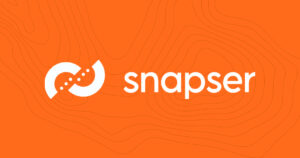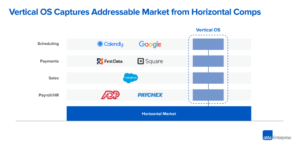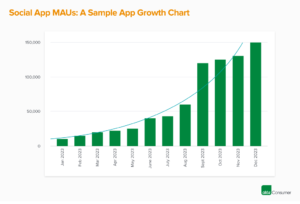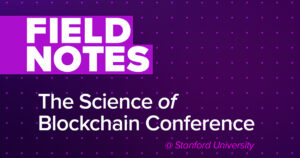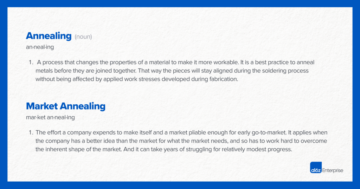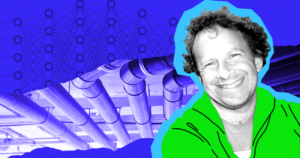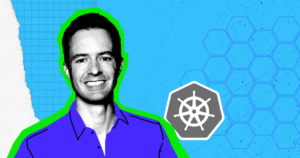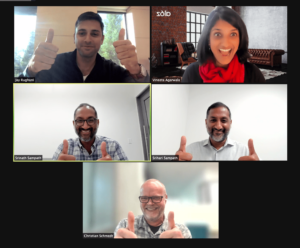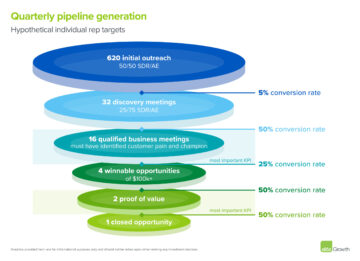Ben Horowitz discusses the leadership styles of Intel’s Andy Grove and Apple’s Bill Campbell, how Okta won its market with culture, and how to look for and hire the talent you don’t have in an interview with David Weiden, founding partner at Khosla Ventures, at the Khosla Ventures CEO Summit.
TABLE OF CONTENTS
TABLE OF CONTENTS
Transcript
David Weiden: I’m pleased to introduce Ben Horowitz. Ben, welcome.
So, we’re talking about culture, and I thought we’d start with someone I know is one of your heroes, Andy Grove. People think of him as a management guru, but obviously the overlap between great management and building great culture is a lot. I thought it’d be great to hear about what you have taken away from your many studies with Andy, including as it relates to culture.
The management legacy of Intel’s Andy Grove
Ben Horowitz: I think people get culture confused with values on the wall. Integrity, we have each other’s backs, all this kind of stuff that people put on the wall and then don’t do. And so when you think about culture, I thought Bushido had the best definition, which is “culture is not a set of beliefs, it’s a set of actions.” Andy was really good on that front. If you think about it, the reason it doesn’t work to put in your annual review, or put values on the wall and so forth, is because culture is the little things. Somebody calls you—a colleague–Do you call him back in five minutes, in an hour, the next day? Or do you just drop him on the floor and never call him back at all? That’s culture, and that drives a lot of things. Do you show up on time for meetings, or 5 minutes late, or 10 minutes late? These are the cultural things that actually end up driving what it really feels like to work there and what it’s like to do business with you. Andy really understood that at an amazing level.
He did things that seemed absurd when you hear about them. He would get to work at 8 in the morning and then see who was there. If someone wasn’t there, he would write ’em up and then he would check their desk to see if it was clean. It was really important that you had a clean desk. Why do you care if somebody has a clean desk? It’s Intel. Intel was about precision. The cost of a miss on a tape out is extraordinary. When you’re about precision, how do you get that into the culture? It starts with: when I go to work, I need my desk to be clean because Andy cares about everything being right. Little things like that that he would do to set the whole tone.
I’ll give you my favorite story from Andy. After he had retired and he was at the Grove Foundation, I went to go see him. It’s a little office. The Grove Foundation was—as you would expect from Andy Grove—low key. He had one picture on the wall and it was this framed award, the Santa Clara Manufacturing Facility Leadership Award. He was Time Magazine Man of the Year. He’s one of the greatest CEOs, maybe the greatest CEO, in the history of Silicon Valley, and he’s got this Santa Clara Manufacturing Facility Award for Leadership. I was like, “why do you have that on the wall? Why’d they give you the award? You’re the CEO, why are they giving the CEO the Manufacturing Facility Award?” And he says, “Ben,they were ranked the lowest in maintenance in all of Intel. They had the worst facility under spec. Terrible. So I go over there to talk to them about it. And they just start hitting me with all this bullshit about how they don’t have the right resources and how this was unfair. And so I reach under my chair and I pull out a roll of toilet paper, and I put it on the desk. And I said, ‘when you’re done cleaning up your bull, tell me when you’re going to be up to spec.’” Within three months, it was the highest-rated facility at Intel.
Why everyone remembers Bill Campbell
David: Let’s go from him to another dominant figure that still scares the hell outta me, Bill Campbell, and talk about some things that you’ve taken away from Bill about building culture that are useful to share with people here.
Ben: Bill was a very different guy than Andy Grove. When I look at Andy Grove, I, as a CEO, I don’t know that I did anything better than him. He was so good at all aspects of that job. Just incredible. Bill wasn’t like that. There were things he was good at, things he wasn’t that good at, but the thing that he was great at, he was better at than anybody that I’ve ever met. When you met him, he would get a read on you within three minutes and then he would remember you, your wife’s name, your kids, where you grew up, all that stuff, forever. I still run into people who knew Bill Campbell, and they’re all like, Bill’s the greatest guy in the world!
Everybody loved that guy because he was so good at people skills. The only person I ever ran into who had that like him was Oprah. That’s how good he was. He was Oprah-level at really understanding people. The thing that it translated into from a management standpoint was: one of the hardest things to do—and it’s one of the most important things culturally—is when you’re talking to somebody, realize you’re not talking to that person, you’re talking to everybody in the company. You have to represent the people who are not in the room. Bill was really good at that.
When I was running LoudCloud, we did this big deal to get out of what would’ve been a business that took us bankrupt by selling the services component to EDS and then becoming a software company. I was talking to Bill on the phone saying, “we just did this big deal and it’s really exciting, we’re going to announce it.” And he goes, “you’re selling a lot of the employees to EDS, and you’re laying a bunch of people off.” I was like, “yeah, I’ve got to do that the next day.” He goes, “no. You can’t go to New York.” I was like, “what do you mean?” He said, “all anybody in the company’s going to want to know is where they stand. As soon as that news comes out, you can’t wait a minute. You have to tell them simultaneously with the announcement.”
Of course, as soon as he said it, I knew it was right. I sent [Marc] Andreessen to New York to do the announcement and I did a layoff and told everybody where they were. We ended up recovering as a company and selling it to Hewlett Packard for $1.6B, but none of that would’ve happened if I had gone to New York. It was that important a moment, and he could see it so obviously. He really always started there. How is everybody going to understand what happens?
How culture gave Okta the competitive advantage
David: Let’s talk about how CEOs go from the struggle—both struggling to be a good CEO and struggling with the company—to being a great CEO.
One thing that I think happens when people come to a conference like this is, they see people like you and they think, “I’m not like that. How do I get to be that good?” In particular, I thought it’s interesting to talk about Todd McKinnon and Okta. I often say Todd’s the most improved CEO I have ever worked with. You were a CEO coach, so what’d you do?
Ben: I think you got to give more credit to Todd, but here’s the thing that happens to CEOs. I know a lot of you are CEOs, so you get this. The thing that makes you good is some combination of competence and confidence. The difficulty with boards and VCs is they’re really good at identifying what you can’t do: “Oh, you can’t do marketing, you don’t really know finance, or whatever.” The problem with that is if you can’t do it, just hearing that you can’t do it just messes up your confidence and your flow. And so that’s not always that helpful.
The phrase I always keep in mind when I’m working with somebody like that is, “coach them on what they can do,” which is from Al Davis, the old Raiders owner. That’s really the case with CEOs. Todd got himself into trouble, if you recall, because they had the wrong go-to-market. Okta had this bottom-up go-to-market. But at the time, for a security product, it was only actually interesting to larger companies because little companies don’t care that much about security and have nothing to lose. The other thing is that it only worked if everybody was on Okta, so they had to sell the whole company at once. They needed a different sales motion, and he just didn’t know anything about go-to-market. He had been a VP of engineering at Salesforce. I just said, “look, Todd, let me help you.” To Todd’s credit, he said, okay. It was just like, “Todd, you’re great at running the company. You’re great on the leadership side. You just don’t know how to do this, so let me just help you do that. Once he got that, then he got his confidence together and then he just got better at everything.
The phrase I always keep in mind when I’m working with somebody like that is, ‘coach them on what they can do.’ Click To Tweet
David: What do you think about the culture that he and Freddy have built there [at Okta] and any lessons for the CEOs here?
Ben: The thing that they did culturally that was the most important for them—and this is really important on culture—is the thing that went with the company. Because they were a security company, trust was always such a big thing for them. That was a big component of the culture. You have to be able to trust us, and actually, it almost lost them the company. They were missing every quarter at that time. They had this deal, but the sales guy had promised features, that they weren’t going to have for two years, would be there in a quarter. They had to decide whether to take the order, get the round done, and keep it moving.
But Todd was like, “no, trust is so important that if there’s a story where I okayed a lie, I’ll never get that out of the company.” They told the truth, and they didn’t get the deal. They whiffed the quarter. We almost didn’t get the round. I think David led the B round with a $7M check. That’s how it was. By your fingernails, they were hanging on.
But that cultural thing led to always putting reliability and security ahead of features in their development. They were neck and neck with this company, OneLogin, who was actually turning out features much faster. But one day, OneLogin got breached because they did not have that value, they didn’t have that belief. That was the end of the competition. We never saw ’em again. Okta just destroyed them after that. That’s where a cultural thing, if you commit to it and it really goes with the business strategy, can have a huge payoff. That’s probably the best thing that I saw them do.
Finding the talent you don’t have
David: Changing gears, a topic that both of us care about is what I call diversity, but I’ve listened to you explain that that’s the wrong way to think about it. It’s better to think about it as talent discovery.
Ben: I think diversity is a misdiagnosed problem because it’s diagnosed as racism and sexism, and that’s why things aren’t diverse, and that’s not really what’s going on. On diversity, for the most part, what’s going on is profiling. How do you hire somebody? Well, I know what I’m good at, I value it highly, and I can test for it in an interview, so I’m going to hire me. That’s generally how it works. If you look at any organization, if you’ve got a group that’s run by a Chinese person, there’ll be a lot of Chinese people there. If you have a group run by a woman, there’ll be a lot of women there. That’s the way it goes. You can look at almost any organization, and it works out this way.
It gets very dangerous if you try and not see the talent and just see the gender, color. Let me give you a great story on that. Steve Stoute, who spoke here a few years ago, called me up one day, and he says, “Ben, I used to be president of Sony, Urban Music.” I, of course, already knew that ’cause I’d known him for years, but he was setting me up for a story. I said, “yes, Steve, I know that.” He said, “yeah, but it wasn’t urban music. It was black music, but they made me call it ‘urban music’ because calling it ‘black music’ would’ve been racist.” I said, “that’s silly.” He said “no, that wasn’t the dumb part. The dumb part was, because we called it ‘urban music,’ I wasn’t allowed to market in rural areas—like all black people lived in the city.” I was like, “wow, that’s crazy.” He said, “you’re not even listening to me, Ben. I was president of Sony, Urban Music. I had Michael Jackson. What white people don’t like Michael Jackson?” It wasn’t black music. It was music. Then if you fast forward from that era of the Urban Music department and the black section and Tower Records to today: go look on Spotify. Look at the top 100. More than 70% of the business is black music.
It wasn’t black music. It wasn’t a niche. It was just music. And just because some executives had a diversity program to help them, they niched it into this tiny market that was much smaller than what its actual reach was. That’s what we end up doing, with—I call it “urban HR”—where you have a diversity department run by somebody who’s completely disconnected from the culture that you want for the rest of the company. They’re putting people through a side door instead of through the front door, ’cause you can’t see the talent. You’ve got to develop the ability to see talent that you don’t have.
I don’t care about how many kinds of people we have. All I care about is attrition, job satisfaction, promotion rates. Can I tell what race or gender you are? And if I can’t, then I’m good. Because that’s what matters. If you’re a great place to work for people of all different talents and backgrounds and cultures, then you’re going to be attractive to that. You have to understand that talent base to be that. And you have to be able to evaluate it. In my view, you have to put in the work, you have to understand talent that you don’t have, you have to network to people that you don’t know. And if you just try and shortcut it by hiring X number of this gender and this race and this orientation, then you’re going to ruin your culture and your environment, because everybody’s going to question everybody. You can’t unsee the hiring process.
You have to put in the work, you have to understand talent that you don’t have, you have to network to people that you don’t know. Click To Tweet
Building a resilient company culture
David: Last two questions. How do you make trade offs when you can’t optimize for everything? You and I were talking about how we remember hundreds of years ago, when we were at Netscape, we had a star engineer who was critical and was quitting because he’d gotten a higher offer somewhere else. I came to you, and I said, “we need to retain this person.” It wasn’t that big of a deal to match the offer. We could afford it. You said, “no, we’re not doing that.” Because if we do that with this guy, then we’ve got to do that with everybody else. But how do people know when to match offers? Sometimes, there is a short-term emergency where, if you don’t do it, you’re dead.
How do you decide whether to optimize for the long term or the near term? How do you think about that?
Ben: I think that one thing that people care about a lot in a company and in life is fairness. Is there some set of rules at work that if I do my job, if I make my contribution and so forth, I’m going to be treated fairly? That’s a big thing. By the way, it’s also a big thing on diversity. Are you just going to promote your buddies, your clique, your people like you, or do I have a real chance here? It’s such an important underpinning of everything you want to do culturally, job satisfaction-wise, and so on.
My management philosophy at that time and the way we were doing things is: we evaluate everybody on a frequent basis together, and then whoever is performing the best gets the raise. Not the person who quits and gets another job offer, not the person who asks for it, and so forth. That was the principle. For me, that was more important than any individual at that time.
Reed Hastings has a whole other philosophy, which is you have to get another offer in order to get a raise at Netflix, or at least that’s what he indicates in his book. There are different ways to go about it, but I think that it has to be transparent, fair, and principled. If we had given him the raise there, it would’ve been anything but that. Because the whole thing that we had agreed upon was that we had this process, so anybody who followed the process got screwed. To me, that was never going to happen. I never want to penalize people for not asking for a raise, for not going to get another job, and so forth. I’d much rather give people a reward for being loyal and honest and doing what we asked him to do than this other shadow way of doing things.
David: Okay, last question.
When OpsWare was acquired by HP, you made a comment about what it was like to work at HP. It was like nobody cared. It wasn’t their company. One thing that clearly helps the company succeed is having the whole company be resilient and having ownership and having the whole company be courageous.
So, for a closing thought: what advice would you give to CEOs to set a resilient culture?
Ben: At this point, and most of you are probably at this stage in your company, it feels like for everybody who works there, they’d only work there if they felt like it was their company. It’s a startup. We’re all in this together. This is my company. Whatever I contribute is going to matter because this is something that I built. That feeling, the longer you can preserve it at the higher the scale, the better your company’s going to be, just in very rough terms. At Hewlett Packard at the end, nobody felt like it was their company. They were on their fourth professional CEO and everybody was there for a paycheck. And the difference in the quality of the company, the ability to do new things, everything really relies on that. Am I working there, or is it my company? One of the amazing things about Amazon—that you see almost throughout Jeff’s tenure—is that he was able to maintain that idea that people at Amazon really felt like Amazon was theirs at a giant scale. You lose it. It’s never as good as in the very beginning. You lose it over time, but the slower you lose it, the better off you are. When you think about culture and management and all these kinds of things, it’s really important to keep that in mind. If I do this, will everybody feel like it’s their company?
David: Thank you very much, Ben.
Ben: Thank you.
***
The above transcript is abridged and edited for clarity.
The views expressed here are those of the individual AH Capital Management, L.L.C. (“a16z”) personnel quoted and are not the views of a16z or its affiliates. Certain information contained in here has been obtained from third-party sources, including from portfolio companies of funds managed by a16z. While taken from sources believed to be reliable, a16z has not independently verified such information and makes no representations about the enduring accuracy of the information or its appropriateness for a given situation. In addition, this content may include third-party advertisements; a16z has not reviewed such advertisements and does not endorse any advertising content contained therein.
This content is provided for informational purposes only, and should not be relied upon as legal, business, investment, or tax advice. You should consult your own advisers as to those matters. References to any securities or digital assets are for illustrative purposes only, and do not constitute an investment recommendation or offer to provide investment advisory services. Furthermore, this content is not directed at nor intended for use by any investors or prospective investors, and may not under any circumstances be relied upon when making a decision to invest in any fund managed by a16z. (An offering to invest in an a16z fund will be made only by the private placement memorandum, subscription agreement, and other relevant documentation of any such fund and should be read in their entirety.) Any investments or portfolio companies mentioned, referred to, or described are not representative of all investments in vehicles managed by a16z, and there can be no assurance that the investments will be profitable or that other investments made in the future will have similar characteristics or results. A list of investments made by funds managed by Andreessen Horowitz (excluding investments for which the issuer has not provided permission for a16z to disclose publicly as well as unannounced investments in publicly traded digital assets) is available at https://a16z.com/investments/.
Charts and graphs provided within are for informational purposes solely and should not be relied upon when making any investment decision. Past performance is not indicative of future results. The content speaks only as of the date indicated. Any projections, estimates, forecasts, targets, prospects, and/or opinions expressed in these materials are subject to change without notice and may differ or be contrary to opinions expressed by others. Please see https://a16z.com/disclosures for additional important information.
- Andreessen Horowitz
- Bitcoin
- blockchain
- blockchain compliance
- blockchain conference
- coinbase
- coingenius
- Consensus
- crypto conference
- crypto mining
- cryptocurrency
- decentralized
- DeFi
- Digital Assets
- ethereum
- machine learning
- non fungible token
- on leadership
- plato
- plato ai
- Plato Data Intelligence
- Platoblockchain
- PlatoData
- platogaming
- Polygon
- proof of stake
- Uncategorized
- W3
- zephyrnet


